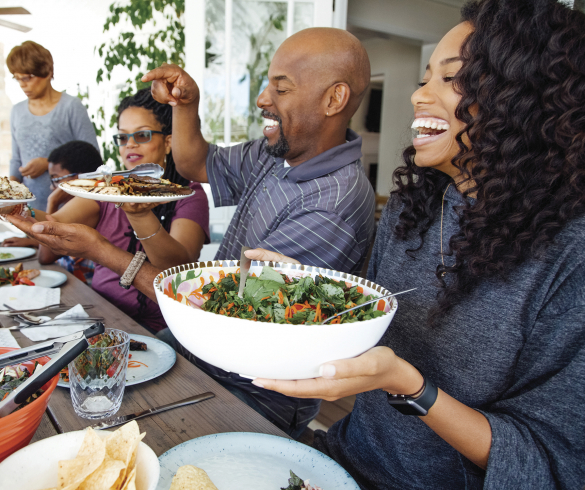
Make Family Reunions Meaningful
During the coming months, families are likely to spend more time together. Reunions that have been postponed during the pandemic will finally take place, and once those long-awaited hugs have been exchanged, everyone can settle in for some overdue catching up.
However, the time many families spent apart over the past couple of years means important conversations may have been put on hold. A family reunion is a perfect opportunity to share stories, reminisce and discover what matters most to the people who matter most to you.
Sitting down with loved ones to talk about their lives can be richly satisfying. Learning about memorable events, favorite activities and valuable lessons they have learned can help bring you closer to loved ones and get to know them in a different way. It can also help you create a meaningful tribute to a loved one when the time comes.
Finding a way to start talking with a loved one may be the most difficult part, but once the conversation starts, it may be hard to stop. Consider these tips from RememberingALife.com, an online resource from the experts at the National Funeral Directors Association (NFDA) to get the conversation started.
Start by sharing mutual stories. If you’ve taken a vacation together or shared a cherished experience, discuss that first to get the conversation going. If your family member is hesitant, share your own stories first so he or she feels more comfortable.
Ask questions. One of the easiest ways to start and maintain a conversation is by asking questions. If you’re not sure what to ask, try inquiring about your loved one’s proudest achievement, the best advice received, a favorite memory or greatest inspiration. A visual prompt like a photo album, souvenir or memento can also be a conversation starter. If you’re comfortable with the idea, also ask how he or she would like to be remembered when gone.
Take notes. Either during or after your conversation, make note of the important memories shared. If it won’t make your loved one uncomfortable, make an audio recording of your discussion so you can listen again later. These notes and recordings may become treasured heirlooms for future generations.
Treat your talk as a beginning. Use it as a springboard for more conversations, during which you can openly talk about any number of things, from reflecting on the past to planning for the future. Designed to be a fun and easy way to help get the discussion started, NFDA created “Have the Talk of a Lifetime” conversation cards featuring thought-provoking questions. The things you discuss may be helpful when your family must make important decisions about how you wish to remember and honor your loved one after he or she dies.
When the time comes, make it meaningful. These shared conversations may help your family plan a meaningful funeral or life tribute event for your loved one that honors his or her life while giving you, your family and other friends a chance to reminisce and say goodbye. When the time comes, memorialization can be an important step in the journey toward healing.
When you’re preserving your family’s legacy, resources such as RememberingALife.com can provide helpful information about memorialization and other end-of-life matters.
Source:
National Funeral Directors Association





























